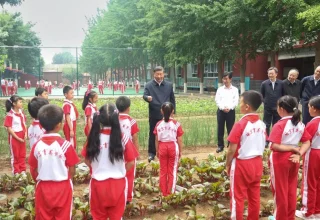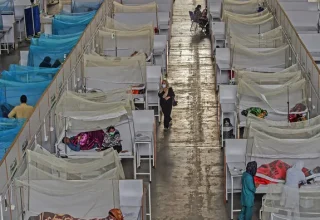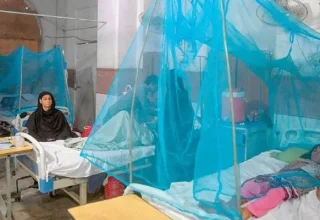
Adolescent boys are twice as likely to commit suicide as girls, and as boys become men, they are three times more likely to commit suicide than girls. After years on the front lines of teaching and monitoring the decline in adolescent mental health, one teacher warns that to tackle the male suicide crisis we need to better deal with male anger, friendships and attitudes towards sex. Official statistics from England, Scotland and Wales show that in 2020, 264 people aged 10-19 died by suicide – 72% of which were boys. In England, suicide is the single biggest killer of men under 45. They are three times more likely to die by suicide than women. While male suicide statistics paint a bleak picture of the future for boys in our schools, teacher Matt Pinkett thinks all is not lost.
What can be done?
Pinkett gathered evidence from teachers and school staff, wellness experts and therapists to create a powerful guide to helping boys in Boys Do Cry, released next month. Practical and engaging guidelines, supported by recent research from the fields of psychology and education, suggest that teachers must stop stigmatizing anger and instead help angry boys understand the neurological and physiological causes of their feelings. Pinkett says: “Anger is not an inherently bad thing and telling boys only leads to shame and hiding. Instead, how do we teach them that anger is as normal a feeling as joy or sadness and give them ways to manage it. Words to talk about this and that?”
He also suggests that teachers should idealize loving, male relationships and assume that every social interaction that takes place in the classroom is being observed and internalized. She advises male teachers to openly praise male colleagues, to speak lovingly about other people, and to praise and greet male emotional vulnerability wherever and whenever possible. “I’m not suggesting that we should ever try to be therapists—that’s never going to work,” Pinkett explains, “but the reality is we’re in front of these kids for a large part of their lives. If we can talk positively about men being emotional and problematic. Showing ways to deal with feelings, that would be a powerful thing.”
Talking is not enough
In ‘Boys Do Cry’, Pinkett advocates the benefits of ‘bromance’, suggesting that teachers and schools capitalize on this relatively recent phenomenon of male-male relationships. She argues that in teaching boys about bromance, teachers can equip young men with the skills to actively listen and show compassion and affection for one another. He suggests that teachers can help boys facilitate emotional connections and develop supportive friendships.
He explained: “The problem isn’t encouraging young people to talk – it’s teaching their peers to listen. Research shows that boys don’t listen as well as girls. There’s a lot of talk about encouraging boys and men to talk, but we teach them how to listen effectively.” Have to support each other?”
Evidenced through research and case studies, Pinkett argues that boys want emotional intimacy and the freedom to express themselves without ridicule, but toxic ideas about masculinity are preventing these productive peer relationships.
“We have to teach boys to be kind, and that it’s okay to be vulnerable and emotionally clear,” he says.
It benefits the society
With her research-backed tools and tips, Pinkett hopes the book will give teachers the confidence to engage with really difficult topics—to everyone’s benefit. “This is not just a problem for teenage boys. If we can teach these boys to get rid of those harmful and outdated expectations of what it means to be a man, all of society will improve,” Pinkett said. “Only through the education of young people can the scourge of male and female sexual abuse, assault and harassment be eradicated.”
‘Boys Do Cry’ examines key research on issues affecting boys’ mental health, including topics such as body image, pornography and self-harm, and provides teachers with practical strategies to initiate positive change. Through her extensive research, she has developed advice on how to intervene when a child is in danger, tips on how to work as a team so that friendships can be made while learning. “It’s not about turning teachers into therapists,” Pinkett added, “it’s about being brave enough to intervene and give boys a chance to learn another way.”












































